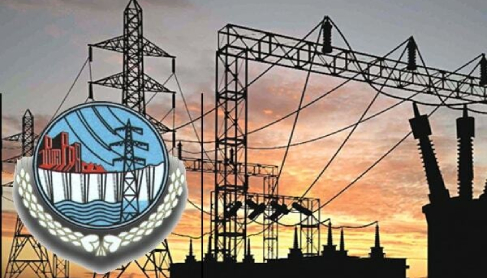World Bank declares more than half of $6.7b project portfolio unsatisfactory or problematic
ISLAMABAD: More than half of the World Bank-funded portfolio of federal projects worth $6.7 billion has been declared unsatisfactory or problematic by the lender, highlighting deep-rooted problems that have remained unaddressed for years due to serious governance issues.
The Ministry of Economic Affairs and the World Bank, the largest creditor of Pakistan, have recently completed a review of the $6.7 billion lending for 20 projects. These schemes are managed by the federal government.
Details showed that only $2.9 billion worth of projects were on track, although some of those were also facing issues that required solutions. Progress on a major chunk of $3.4 billion worth of projects was found partially satisfactory while another $453 million worth of schemes were declared problematic, according to government officials.
The Ministry of Economic Affairs undertook the review with the dual purpose of gauging the performance and finding the possibility of enhancing disbursements to compensate for some of the shortfalls in the backdrop of external financing gap of $6.5 billion.
The worst-performing departments include the Water and Power Development Authority (Wapda), which has been run by retired military generals for decades. The projects administered by the National Transmission and Despatch Company, Federal Board of Revenue, Ministry of Planning, Ministry of Finance and State Bank of Pakistan (SBP) were also facing serious execution-related problems, according to the officials.’
Read Rupee hits 1-month low, IMF talks weigh
This has delayed the intended benefits of these schemes, including those planned for war on terror-affected populations, refugees and flood-hit people in provinces.
For instance, Pakistan took a $213 million loan from the World Bank in July this year for the improvement of livelihood and essential services in Balochistan’s flood-stricken areas. At the time of the review, the project management unit was not functional and a dedicated bank account could not be opened, resulting in zero disbursement.
In 2019, Pakistan had taken a $400 million loan for expanding the narrow tax base but both sides are now in the process of restructuring and extending the timeframe of the project due to multiple delays.
The World Bank noted that the project suffered setbacks due to frequent management changes, slow decision making and a weak ownership.
The $137 million Pakistan Financial Inclusion and Infrastructure project reflects poorly on the performance of the SBP. The original closing date of the project was December 2022 but it has been extended twice. The SBP had taken the loan for increasing access to digital payments, a purpose that does not require any foreign funding.
The $380 million Public Financial Management and Accountability project lapsed last month after two extensions, which reflects poorly on the role of the finance ministry. The World Bank noted that despite two extensions, the project was struggling to achieve results.
Another project run by the Ministry of Finance, called Pakistan Housing and Finance Scheme, was also extended due to delay in achieving the agreed results.
The $340 million National Health Support programme was among the slow moving schemes. Provincial governments took about $69 million in advances against the targets agreed for the current fiscal year.
Pakistan had also taken a $50 million loan for improving institutional capacity to better manage the refugees. The review revealed that the project faced significant delays due to late approvals of project documents and ownership issues.
Similarly, a $200 million loan for addressing the issues arising in the education sector after the Covid-19 pandemic was also suffering from various delays. The World Bank noted that the project suffered because of low allocation in the budget for extending grants to the provinces.
Read more Expressway, sewage projects put on hold
In 2019, Islamabad had taken a $460 million loan under the Khyber Pass Economic Corridor project for expanding economic activities between Pakistan and Afghanistan. In almost four years, only $2 million was disbursed and the scheme had already been restructured in June 2020. The fate of Wapda-run Tarbela hydroelectric power projects for additional generation capacity of 2,820 megawatts with nearly $1.1 billion in World Bank lending was no different.
The $690 million worth of tunnel-four construction had been delayed for over five years and after multiple extensions the project lapsed in June this year.
The $390 million tunnel-five scheme also faced delay in the award of a contract. This project has already been extended twice and the World Bank said it was unlikely that the project would be completed by May next year.
The $588 million Dasu hydropower project is yet another example of poor execution by Wapda. The project suffered seven years of delay in the acquisition of land and the World Bank also termed compensation payments unsatisfactory.
A 132kv transmission line also faced delays. The project’s original closing date was June 2022 and it is still incomplete.
Likewise, the $700 million scheme for evacuation of power from Dasu hydropower project was delayed. In three years, only $100 million could be disbursed due to slow progress.
Pakistan, despite suffering from a poor transmission network, has not been able to effectively utilise the $425 million loan for increasing capacity and reliability of the national transmission system. Approved in 2018, the country took about two and half years to hire consultants. The government is now seeking a three-year extension, as only $59 million could be disbursed in the past five years.
The CASA-1000 Electricity Transmission project to interconnect regional transmission lines also remained a troubled scheme. In the past eight years, only $130 million could be disbursed despite extensions. The $195 million electricity distribution efficiency improvement project is yet another example of poor project execution. The scheme was meant for improving power distribution in the jurisdictions of Hyderabad, Multan and Peshawar





